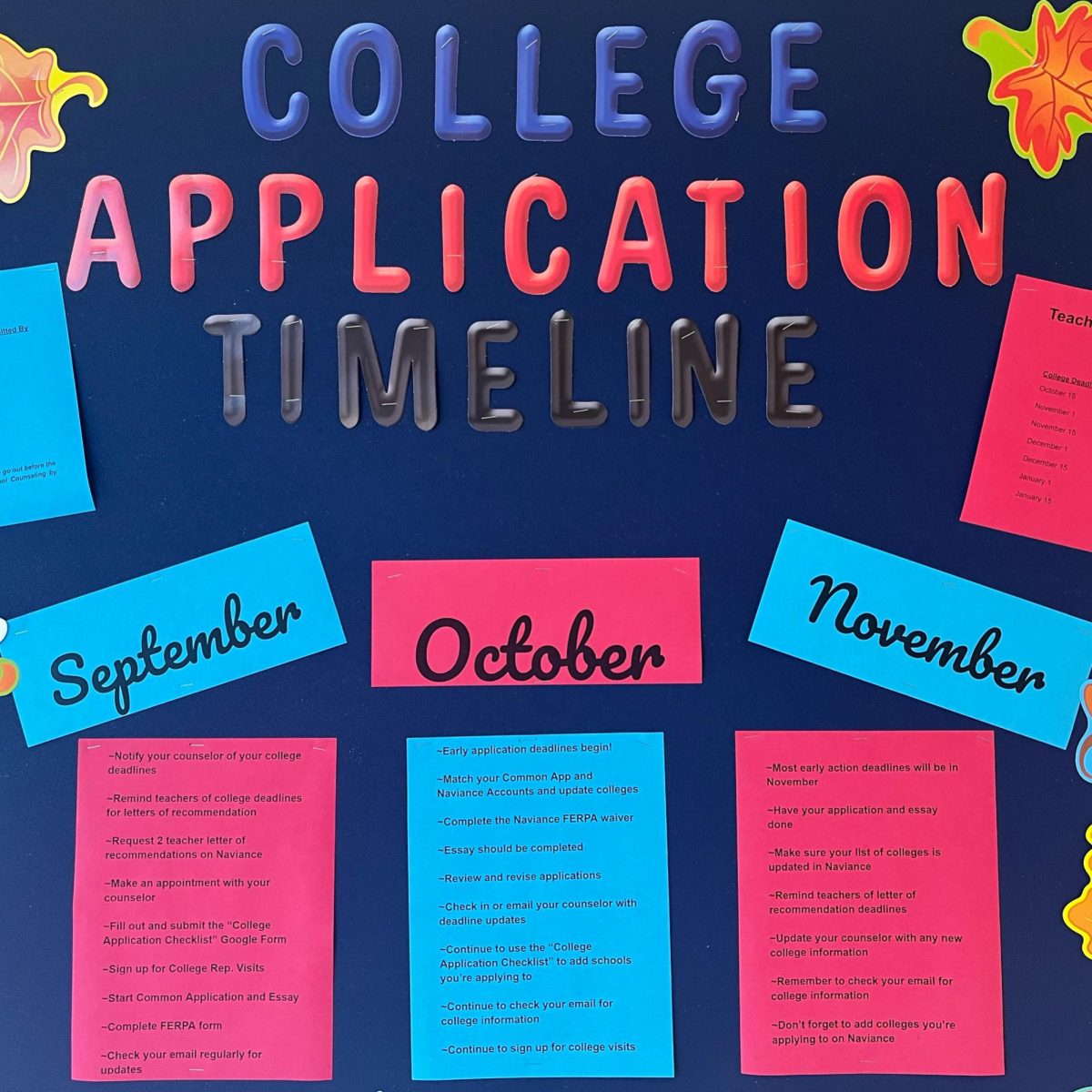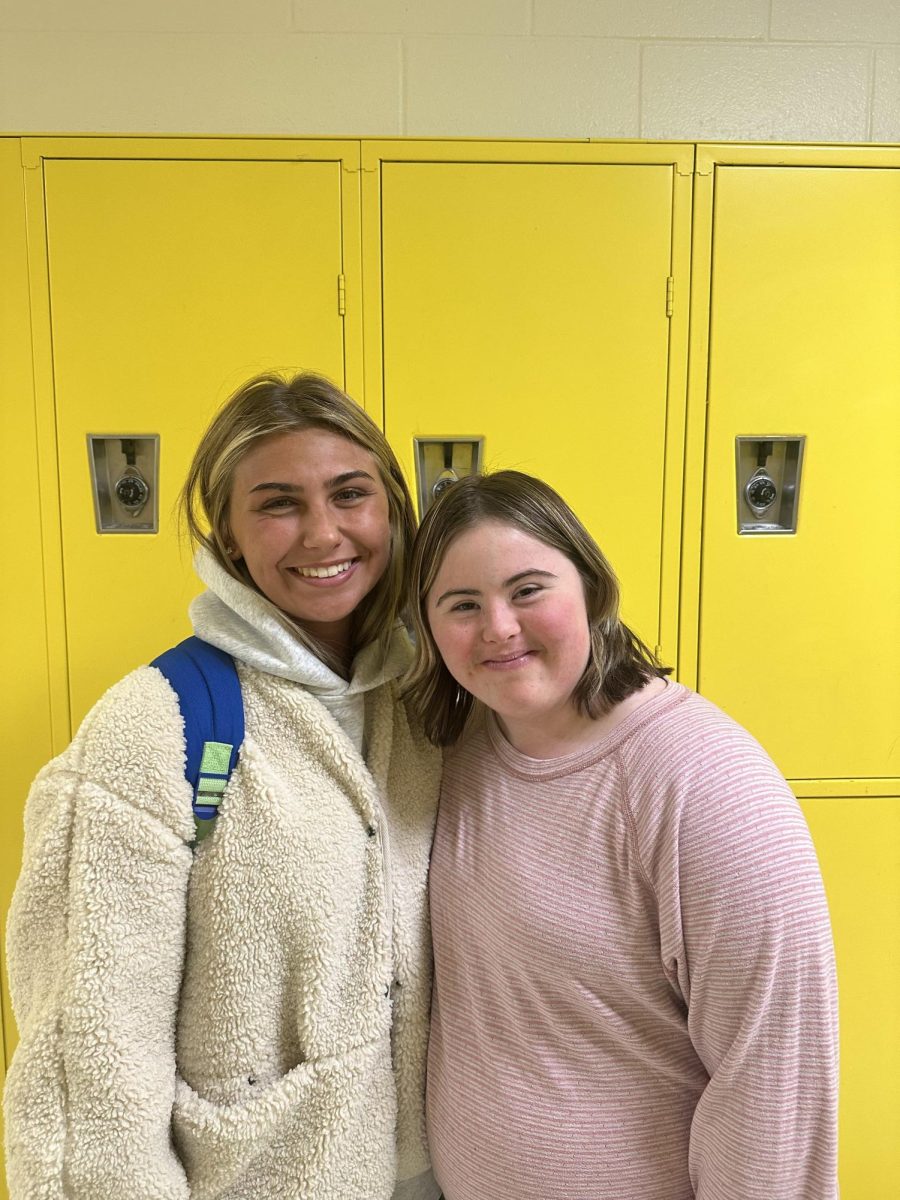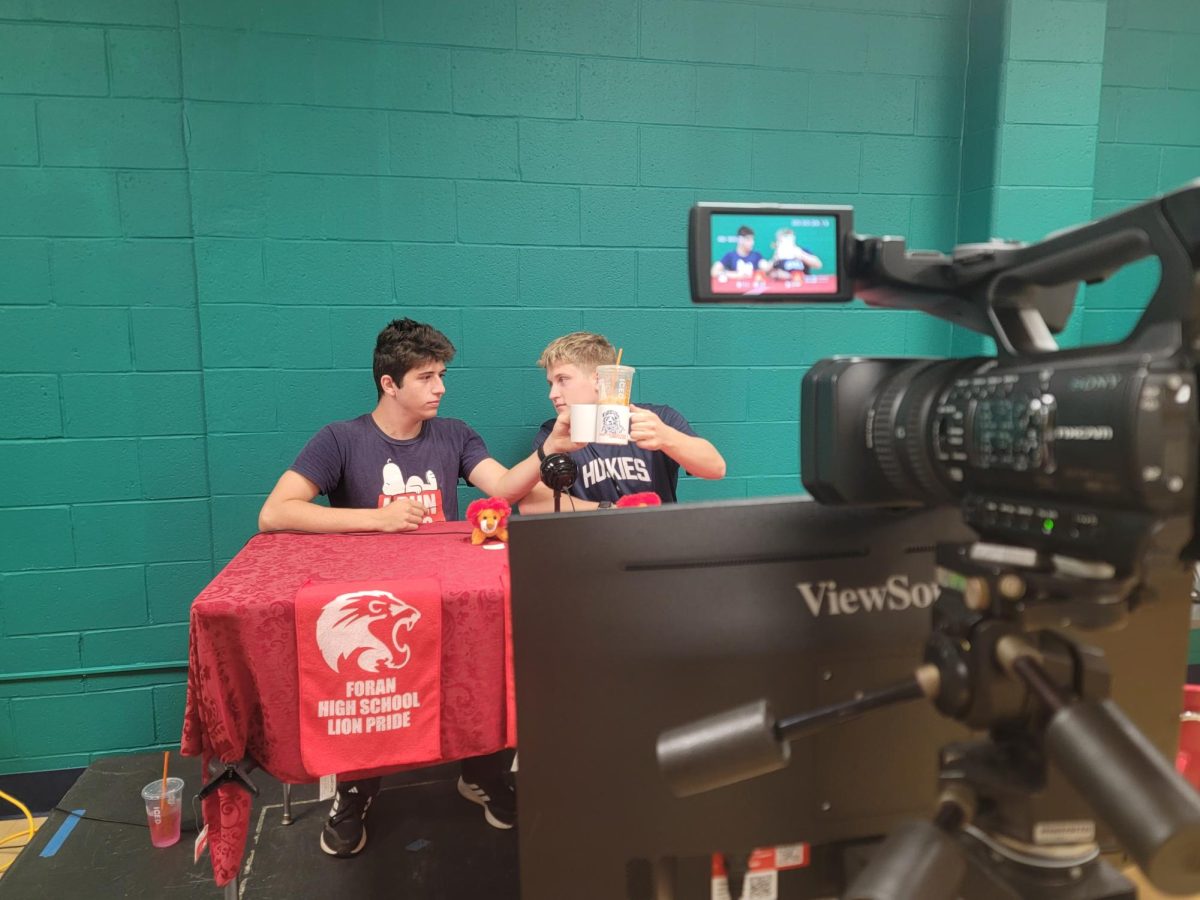Applying to college can be stressful for senior students and their parents. However, with the Common App, students can apply to multiple colleges and universities at once by creating a profile highlighting their best skills.
College and career counselor Mrs. Pamela Procyk states, “You’re gonna put in your name, your address, and information about your parents, but you only do it once so you can apply to multiple colleges without having to repeat the process.”
College applications are a holistic process, with all parts being carefully considered by colleges.
According to Commonapp.org, there are seven steps filling out your application online. First, gather materials such as a transcript and list of academic achievements. Next, create a common app account and add colleges to the college list section. Then, engage with supporters such as teachers and advisors while getting recommendations.
Procyk suggests requesting two recommendation letters from teachers on Naviance. Procyk advised, “For supplemental questions you can have a separate document and then copy and paste everything onto the Common App.”
The Common App requires students to complete the FERPA(Family Educational Rights and Privacy Acts) form, where they choose whether or not to waive their right to review all recommendations and supporting documents. According to the terms and conditions on Common App, its suggested to waive your right, as colleges trust the recommendations more, knowing they weren’t reviewed.
Not every college will require supplemental questions, so an alternate way to showcase your personality is through the Common App personal essay. This personalizes the college application beyond grades and scores.
Writing tutor Ms. Jill Dion says, “Colleges look to the essay to make that final decision about whether or not they’ll accept a student. The essay gives them the little bit more they need to know about them and their ability to work with others.”
Students can stop by Dion’s office in the library to have their essay edited or brainstorm ideas with her.
Dion emphasizes that the essay communicates what a student wants colleges to know about them, and their personal strengths. Therefore, it should be interesting and have the reader be intrigued and like the person behind the essay,
Her advice towards senior students is, “You have to make sure the essay is a reflection of who you are, so you can’t use words that are other than what you’d use when you’re talking.”









